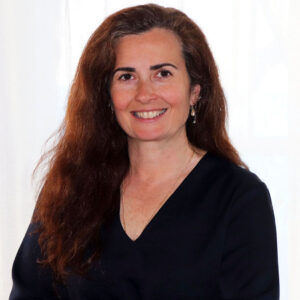“How come I recycle at home and not at school?” The question came from one of my first graders who had recently read a book on sea turtles. I was intrigued by the question and by the passion behind it. “Let’s ask the principal to come in and speak to the class about it,” I replied.
That question sparked a recycling movement in our school and then in our whole district. Artwork of recycling and cleaning environments filled the hallway. Students were newly motivated to read about animals, plants and civics, while they wrote about their efforts to help their community and their planet. The highlight of the year was a class visit from the mayor of East Rockaway who thanked my students for initiating the school’s recycling effort. The students were amazed.
Meanwhile, the wheels were turning in my head. What provides educators with the ability to foster amazement, mastery, resilience, belonging and positivity within their students? The answer was right in front of me: nature! Students are natural observers and by becoming environmental stewards they gain confidence, reliance and love for themselves and the world around them. What if we had an outdoor classroom? A colleague and I got to work. With the help of grants and community volunteers, we cleaned up an outdoor space and converted it into an edible garden that would also serve as our new “classroom.”
Today, my school is home to two gardens: a vegetable and a native prairie garden. Since I started the program, all of the elementary students have planted, weeded, observed and harvested. The students decide which plants to grow and where to plant them, measuring their growth and recording the data. Our fourth graders settled on what they called fondly ‘the three sisters’: corn, beans, and squash. When confronted with the bugs that also enjoy these plants, the students used problem-solving skills to keep the bugs at bay.
The students’ experiences in our living classroom also helped them develop healthier habits they took home from school. They wanted to eat what they harvested, and learned to enjoy vegetables such as carrots, tomatoes and lettuce. I can still recall a student remarking as we planted lettuce one year: “I thought it was called salad.” I responded that there are many kinds of lettuce, and that the one we were planting was called romaine.
A composting program I started also helps students see how organic matter gets broken down. When they have unfinished carrots, apples or other fruits and vegetables, they no longer throw them away but toss them in the composting bin instead. Classes sign up to take the compost outside to containers by the garden. The students turn the contents of these containers, learning about the magic-creating balance of carbon and nitrogen in the process.
They watch the beneficial insects such as ants and spiders break down the foods and turn what they were eating into “black gold,” soil enriched with nutrients that will help our plants grow.
This vivid demonstration of how soil is created is a source of constant amazement for the students. One year at our moving up ceremony, a fifth grader said that his best memory of the school year was playing in the dirt. “I dug and planted and was able to eat the most delicious tomatoes because I took care of the dirt.”
Our outdoor classroom has done more than just teach students about plants. Too often, student learning is disconnected from the world around them, leading them to become disconnected. They can end up feeling like they don’t belong. In my school, our focus on green learning teaches students and their families that they not only belong but are part of a beautiful world.
Teachers at my school are benefiting from the garden too. “I can’t believe how good it feels to be outside,” one colleague told me. “Even when it’s cold, it’s invigorating.” Another colleague who suffers from anxiety now goes into the garden every day for ten minutes with their class. The experience calms down students and teacher. Even my colleagues who lack a “green thumb” enjoy spending time in the garden, reading or writing poetry. The peacefulness of this shared green space brings them all back to the moment.
This coming year is going to be a pivotal one. It is a year in which public schools can lead their families to move forward in positivity, amazement, resilience, and achievement. Our school garden will be my pathway to doing just this.
Anne Conway has been an educator for 28 years. She graduated from SUNY Oneonta, received her master’s degree from Teachers College, and her administrative certificate from the College of St. Rose. An active member in her community, Anne has been a trustee on the Long Beach Board of Education for the past four years. She lives with her husband Paul, their three children, her mom, three rescue dogs, and R2D2 a bearded lizard.


